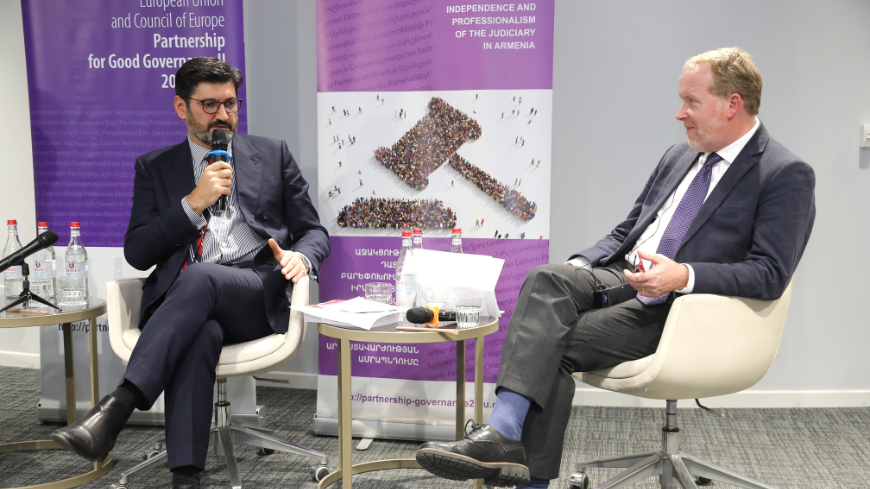Successful litigation at the European Court of Human Rights is not an easy task and requires from legal professionals some fundamental knowledge about the peculiarities of the application to the Court. Publication of the Armenian version of the book Taking a Case to the European Court of Human Rights is a valuable resource for the legal community as it explains the step-by-step approach to the litigation process, covering areas such as lodging the initial application, seeking priority treatment, friendly settlement, the pilot judgment procedure, just satisfaction, enforcement of judgments, and Grand Chamber referrals.
The 4th edition of the book, by a renowned author Professor Philip Leach, who is a Professor of Human Rights Law at Middlesex University with extensive experience of representing applicants before the European Court of Human Rights, includes an expanded and up-to-date article-by-article commentary on the substantive law of the European Convention.
On 14 December 2022, the Council of Europe and the Europe in Law Association launched the Armenian version of the book Taking a Case to the European Court of Human Rights, and presented it to the representatives of the accredited diplomatic missions, judiciary, international and national partners.
In his keynote speech, Professor Philip Leach highlighted the significant importance of the new approach adopted by the European Court of Human Rights to address the systemic human rights violations by creating a pilot judgement procedure which allows to identify the source of large-scale structural problems such as malfunctioning legislation. ‘’Majority of pilot judgements concern the disputes over property rights and excessive lengths of proceedings’’ said Professor Leach.
Talking about the relevance of the Armenian version of the book for the Armenian context, Constitutional Court Justice Vahe Grigoryan stated that the book will contribute to the development of legal thinking within Armenian legal community as it contains enormous volume of important information with the most up to date editions.
The book has been translated into Armenian with the financial support of the Friedrich Nauman Foundation. The publication of the Armenian version of the book was supported by the project “Support to the judicial reform – enhancing the independence and professionalism of the judiciary in Armenia”, funded by the European Union and Council of Europe and implemented by the Council of Europe within their Partnership for Good Governance (PGG II).




